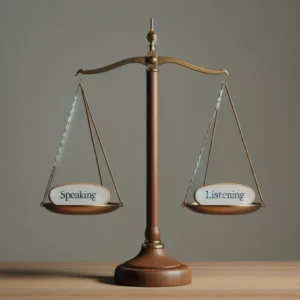Breaking up is hard to do. Especially when you still love the person you’re leaving. But sometimes, love is not enough to keep a relationship going. Sometimes, you have to choose what’s best for you – and for them.
Ending a relationship with someone you love can be emotionally devastating. But it doesn’t have to be a nightmare. You can end things with grace, respect, and kindness. You can honor the good times you had, and the lessons you learned. You can heal, grow, and move on.
This guide will help you do that. From figuring out your reasons to having a mature breakup conversation, you will learn how to break up with someone you love without hurting them – or yourself.
Key Signs Your Relationship Has Run Its Course

Breaking up is seldom impulsive. More often, it’s the accumulation of ongoing issues and a creeping sense of unhappiness that leads to the decision. Here are some of the most common indications it may be time to let go:
You Feel Chronically Unhappy
This is often the biggest red flag. If you find yourself consistently unhappy more days than not, it likely means something fundamental is off in the relationship. No amount of effort seems to change it. You don’t laugh together like you used to. Small annoyances seem like major irritations. The joy has drained away.
Of course, any partnership will have ups and downs. But prolonged unhappiness signifies something is amiss at a core level. After honest communication and trial periods, if nothing seems to shift the tone for the better, it may be time to reevaluate.
The Relationship Feels Draining
Healthy relationships provide a sense of comfort and mutual support. They lift both partners up. When a relationship becomes excessively draining instead, it’s cause for concern.
This could show up as emotional exhaustion, constant mental stress, or even physical fatigue. You’re putting in far more energy than you’re getting back. If you’re perpetually worn out from simply keeping the relationship afloat, listen to that instinct. It may be your inner wisdom nudging you to recognize an unhealthy dynamic.
You’re Growing Apart
People evolve. It’s completely normal for individuals in a partnership to grow and change as life progresses. The key is whether they can find enough common ground for those evolutions to coexist.
If you realize your values, interests, or life visions no longer align – despite multiple efforts – that’s significant. Intimacy depends on mutual understanding and shared aspirations. If you’re entirely out of rhythm, it likely indicates irreparable differences.
Your Intuition Senses Something Is Wrong
Deep down, we often know the truth before we’re ready to accept it consciously. Pay close attention to any persistent feelings of doubt or the sense that something vital is missing.
Intuition manifests through a gnawing discomfort, a weight of unrest we can’t seem to shake. This inner wisdom is powerful. If something feels off in your core, create space for deep reflection. Are your instincts revealing truths to explore? Counseling can also help provide clarity.
Your Partner Refuses to Address Issues
For a relationship to thrive, both people must be willing to put in effort. If you’ve raised concerns and your partner consistently shuts down constructive communication, that’s worrisome.
A healthy partnership requires vulnerability, compromise, and a desire for growth from both individuals. If one person stonewalls or refuses to acknowledge issues, it may mean you’ve reached an impasse.
Preparing For a Compassionate Breakup Conversation

Once you’ve determined ending the relationship is the right choice, thought, and care should go into planning the breakup conversation. Here are some tips:
Reflect First, Then Decide
This is a major decision with profound implications. Before taking action, pause for sincere introspection. Consider enlisting a trusted friend or therapist as a sounding board.
Be honest with yourself. Why does parting ways feel like the healthiest option? Make a list of resolvable issues versus core incompatibilities. Reflect on your feelings and motivations before cementing your decision.
Pick a Private, Neutral Setting
Choose a quiet setting free of distractions. Avoid crowded public spaces. Also refrain from locations holding symbolic meaning, like ‘your spot’. This can unnecessarily intensify emotions on both sides.
Opt for neutral ground like a walk in the park. The setting should allow you both to speak and listen openly, without outside scrutiny or noise impacts.
Consider What You’ll Say
It’s perfectly normal to feel anxious about the conversation. Jot down talking points in advance so you can clearly express your thoughts. However, avoid reading off a script – this can feel cold.
Make your message kind but direct. Share the specific reasons you believe the relationship has run its course. Focus on incompatibilities versus criticism. Speak your truth with care and poise.
Prepare for Emotional Responses
Of course, this news will impact your partner, potentially deeply. Expect reactions like confusion, sadness, shock, or anger. Do not let volatile emotions dissuade you. With empathy, maintain your resolve while also giving space for processing.
Ultimately, you know what is right for your journey. Have compassion, but don’t backtrack due to temporary assurances. You’ve made this choice for good reason.
Having a Thoughtful Breakup Conversation

When it’s time for the actual discussion, keep it centered, calm, and respectful. Here are some guidelines to follow:
Lead with Care
Ease into the difficult news, perhaps by acknowledging how meaningful the relationship has been for you. Offer empathy for the pain this causes. Make it clear you still care deeply for them as a person.
From this place of mutual respect, share your reasons. Use thoughtful “I” statements rather than accusations. For example, “I feel we want very different things out of life.”
Listen with Compassion
Expect myriad emotions. Your partner may be cycling through disbelief, bargaining, sadness, and anger – all normal. Keep listening. Resist the urge to console or problem-solve immediately.
Hear them out with empathy. Allow them to feel heard and seen in their hurt. Understanding goes a long way, even when the decision is final. Offer them that gift.
Provide Clarity of Intention
Remaining gentle but firm is key. When you know in your heart this partnership has run its course, make that clear. Do not leave room for misinterpreted doubt or false hopes.
Of course, no one can predict the future. But at this moment, you are choosing to let go with love. State this with kindness and just enough closure so healing can begin.
Part with a Positive Tone
Before parting ways, express your sincere hope that you will both find happiness, even if that journey takes you down separate paths.
Share appreciation for the meaningful moments you did have together. Offer well wishes for their future in love and life. With this compassionate tone, you can both begin moving forward.
Key Mistakes to Avoid When Ending a Relationship
Even with good intentions, it’s easy to trip up when ending a treasured love. Steer clear of these common blunders:
Using Cliché Lines
You may want to soften the blow, but trite phrases like “it’s not you, it’s me” tend to ring hollow. They dodge the real issues and often leave your partner confused. Be honest, but also be kind.
Bad-Mouthing Your Ex
Resist the urge to vilify them to friends in the aftermath. Taking the high road preserves their dignity and yours. Keep details private and remind mutual connections to be respectful.
Giving False Hope
Don’t imply you’ll rekindle the flame someday if you know definitively it’s over. This prolongs their grieving process and prevents you both from moving on. Be clear the separation is permanent.
Playing the Blame Game
Pointing fingers usually escalates pain on both sides. Accept relationships involve two imperfect people. Seek to understand rather than accuse. In most cases, no one is solely “at fault.”
Navigating the Aftermath of Letting Go
Just because the relationship has ended doesn’t mean there won’t be emotional aftershocks. Walking through this aftermath with self-care can help smooth the transition.
Let Yourself Feel the Loss
You may be awash in various feelings – grief, regret, loneliness, and more. Allow yourself to fully feel and process this loss. Ignore any notions that you should ‘get over it’.
On this journey, the intensity of feeling reflects the depth of love. Release judgment and let your heart guide you through this passage at your own pace.
Fill Your Days with Light
Loneliness may sink in as you adjust to life without your former partner. Combat emptiness by filling your schedule with activities and people who spark joy.
Pursue hobbies that engage you. Make plans with uplifting friends. Delve into projects you’re passionate about. Staying active boosts your mood and reminds you that you still have so much light within you and around you.
Practice Daily Self-Care
In times of emotional upheaval, nurturing yourself is crucial. Fortunately, self-care can take countless forms. Draw soothing baths, sip herbal tea, meditate, or get a massage.
Treat yourself with extra gentleness during this tender time. Through small daily actions, you’re reminding yourself of your worth.
Seek Counseling If Needed
Should sadness or regret linger for long periods, counseling can help. There is no shame in enlisting support during major life transitions.
An experienced therapist provides tools to process feelings in a healthy way. They can also help you reflect on lessons learned, and uncover your truest self beneath the grief.
Moving Forward with Strength and Wisdom
Breaking up with someone you love can crack open your world. But within that openness, light pours in. This passage – while painful – can awaken you to new possibilities within yourself and your future. Here are some parting thoughts for your journey ahead:
- Stay connected to loved ones who nourish you. Their support buoys you now.
- Embrace this transition as an opportunity for growth. Reflect on what you’ve learned about yourself.
- When ready, fill your life with fresh experiences that ignite you. Say yes to impromptu adventures and new horizons.
- Have faith that time will lift the sadness, even when grief feels endless. Joy finds you again when you least expect it.
- Forgive any regrets with self-compassion. You made the best decision you could with the wisdom you had.
- Trust that the future holds bountiful love. For now, nurture the relationship with yourself. The rest will unfold.
Breakups mark the end of a chapter, not the end of your story. By leading with care and courage, you can close this book gently. The next volume awaits – blank pages brimming with hope and possibility.
Frequently Asked Questions
How do I know if it’s time to end things with the person I love?
Trust your intuition. If you consistently feel unhappy and off-balance more days than not, it may be time to let go. Incompatibility around core values or life visions is also significant. Reflect sincerely on whether this relationship still nourishes you.
What if I have doubts about breaking up?
Doubts are normal – this is a huge decision! Take space to listen to your heart. Weigh the reasons for staying versus leaving. Enlist a counselor or trusted friend as a sounding board. Give yourself permission to take all the time you need to gain clarity.
How can I break up without tearing my partner down?
Be honest yet kind. Don’t list their flaws, but speak about differing needs or paths forward. Have empathy for their hurt, and compassion for the depth of your bond. Part with well wishes for their future joy. Lead with care.
My ex wants to stay friends. Is this advisable?
It depends on your unique situation. If emotions are raw, distance may be healthiest, at least temporarily. With time, some exes can transition into platonic friends once healing occurs. Trust your intuition on what feels right for you. Don’t feel pressured either way.
How long will it take to get over this breakup?
There’s no fixed timeline – go at your own pace. Let your feelings flow through you. Fill your days with uplifting activities and people. Be extra gentle with yourself. When sadness lingers, counseling can help facilitate healing. With time and self-care, you will feel whole again.
In Summary
Breaking up is never easy, even when it’s the right decision. By using compassion, introspection, courage, and care, you can guide the transition in a way that honors the love you shared while laying the groundwork for individual growth.
While certainly painful, sometimes we must let go of one dream to make space for new ones to unfold. Have faith in the resilience of your spirit and soon your light will shine bright again.


